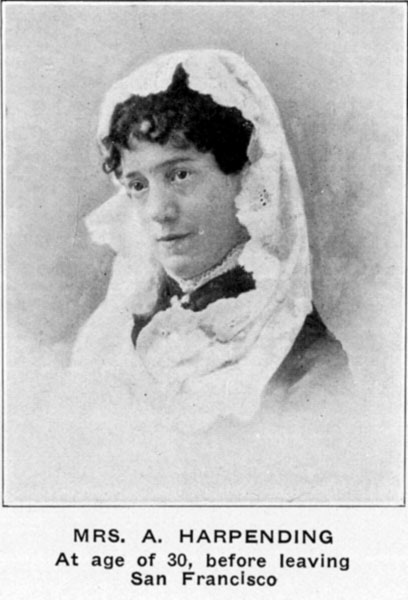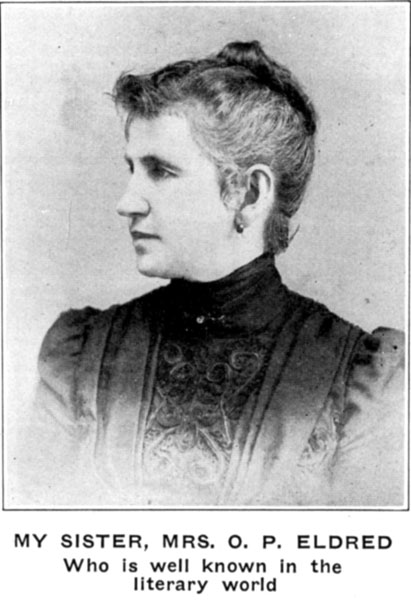| Home -> James H. Barry Press -> The Great Diamond Hoax - Chapter XXXV | |||
|
Chapter XXXV.
Baron Grant Bobs Up Again; Tries to Get Even On Man Who Exposed One of His Big Stock Swindles. Alfred Rubery Brings Suit Against London Times for Libel and Is Awarded £10,000 as Damages. In the charges made by the London Times, it was not difficult to recognize the handiwork of my old enemies, Baron Grant and the financial editor, Samson. The accusation seemed to be an echo of the old Emma Mine fight, when I warned the public against the exploitation of a worthless property. That bubble had burst, carrying ruin to investors, disgrace to the promoters and more than a decade of distrust for every American security in European markets. But the sting of defeat remained and the opportunity to retaliate was one not to be overlooked. Alfred Rubery, being a British subject in good standing, brought the libel suit against the London Times. As my intimate and close companion for nine months, covering the various incidents involved, he admitted that whatever involved me involved himself as well. Although the earth was ransacked for evidence to connect its with the fraud, the defense absolutely failed to sustain the newspaper's charges. Not only that, but the proof I had gathered, as described in a previous chapter showing the secret bond between Baron Grant and the financial writer, was thoroughly exposed, ending in the ruin of both. Samson was dismissed in disgrace by the London Times. Enough was shown of Baron Grant's methods to involve him in lawsuits innumerable that stripped him of his fortune in the end. He did business under assumed names long after, but never with his old success. Heavy damages were awarded Rubery - the sum, if I remember right, was £10,000. Years afterwards he moved to Australia, and as I never heard from him after, I presume that, like the other actors in the diamond-field drama, he is dead. In fact, of all who were in any material way connected with the historic incident - and there were many - I alone survive. For myself, I felt crushed beneath the burden of vague suspicion, became disgusted with life in general and with business in particular, and formed a determination to retire permanently from active affairs at once. With this end in view, I offered my extensive California holdings on a dead market and accepted bargain prices. My controlling interest in the Montgomery Street Land Company I sold to Messrs. Ralston and Sharon, so that they owned share and share alike. I sold a great acreage of tule land to George D. Roberts, part of which comprises what is known as Roberts Island, not far from the city of Stockton. A large estate around Honey Lake I disposed of to various purchasers. Scattering investments in San Francisco were cleaned up in a summary way. I would hardly care to know what all these properties are worth to-day. In four months after the diamond fraud was exposed I had converted into cash everything tangible I Possessed on the Pacific Coast. Although the sacrifice I made was enormous, I realized more than a million and a quarter dollars, which was as good or better than $5,000,000 to-day - a fortune ample to supply the most extensive and up-to-date wants of modern times. The great mistake of my career, entirely apart from monetary reasons, was this hastily taken resolution to seek the shades of private life. Had I faced the music, like all the rest - like Ralston, Lent, Roberts, Dodge and one or two other original "dupes," I would have outlived every trace of suspicion just as they did themselves. And I am glad to give evidence at this late date, long after all of them are dead, that they were as innocent as children throughout the whole transaction - were the unhappy victims of a costly confidence in men. But as I took a pessimistic view of things in general and saw fit to withdraw from public view, perhaps I have not so much reason to complain because, in my absence from the world, Dame Rumor was busy with my name. Three alleged histories of San Francisco, which profess to give an accurate narrative of events, devote much space to the diamond field fraud. Considering the mass of documentary evidence easily accessible, the misstatements of many facts and the omission of others is noteworthy and may call into question the entire accuracy of all these works. To go no further, they all agree that the losses of stockholders were enormous, claim that they brought suit in the State of New Jersey against Arnold and Slack, but never recovered a cent. Lent's suit in Kentucky, the only place where such an action could be maintained, is not mentioned, nor the $300,000 which Ralston contributed to make good. Under these conditions I should not feel hurt because they surmise that the plot was conceived in the "active brain of Asbury Harpending." I returned to Kentucky, made considerable investments in agricultural land and settled down to play the part of the country gentleman. My estate was one of the finest in Southwestern Kentucky and became a center of hospitality in its region. And there I made another grave mistake - not to remain content with the finest existence in the world, that of an independent owner and tiller of the soil. It was while I was living in my new home in Kentucky, at peace with all mankind and oblivious of the outside world, that I had a sharp and vivid reminder of the unforgotten past when the papers told, one day in August, 1875, of the failure of the Bank of California and two days later the tragic story of my old friend Ralston's death. |
|||
 Mrs. A. Harpending At age of 30, before leaving San Francisco. |
|||
 My Sister, Mrs. O. P. Eldred Who is well known in the literary world. |
|||